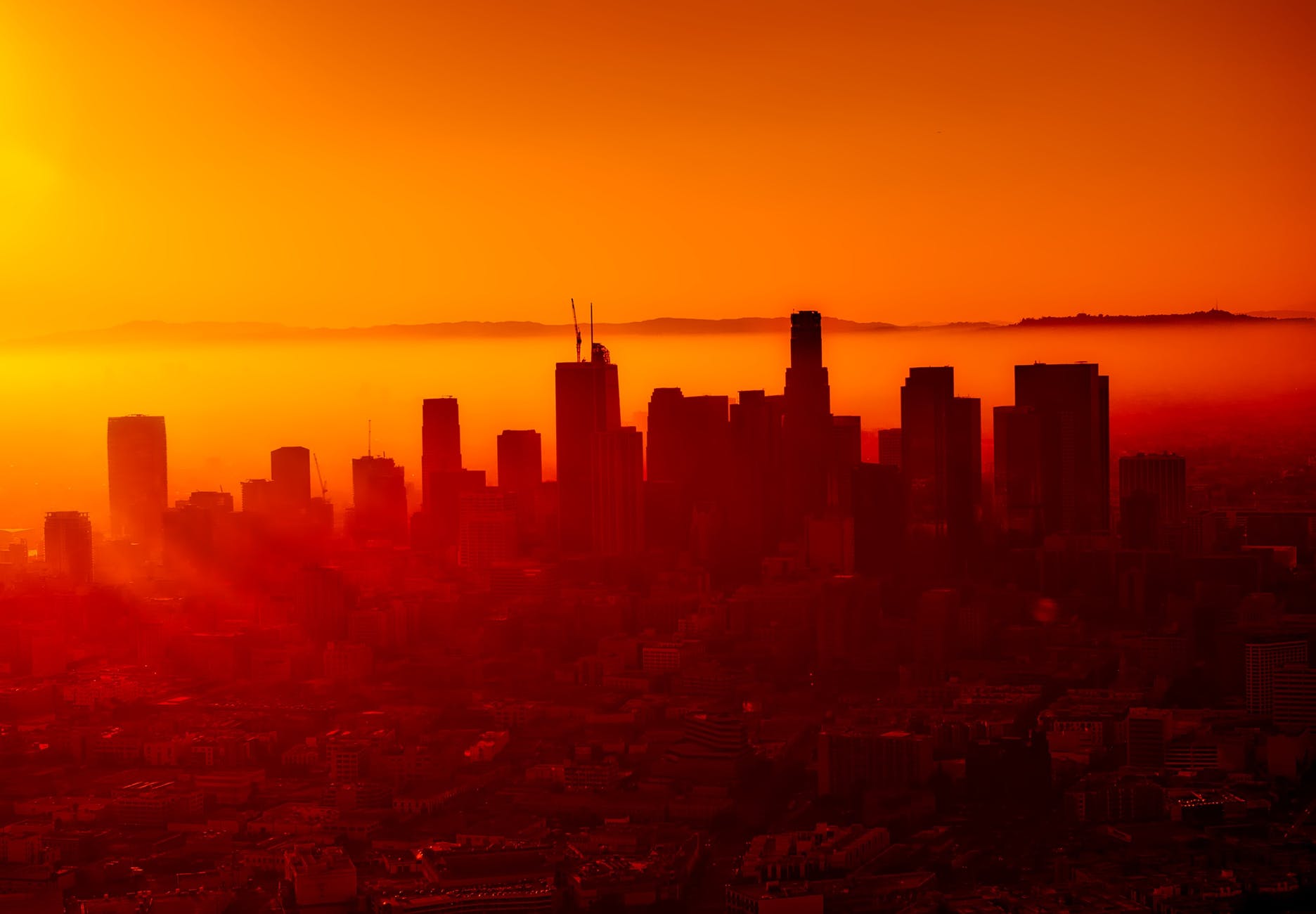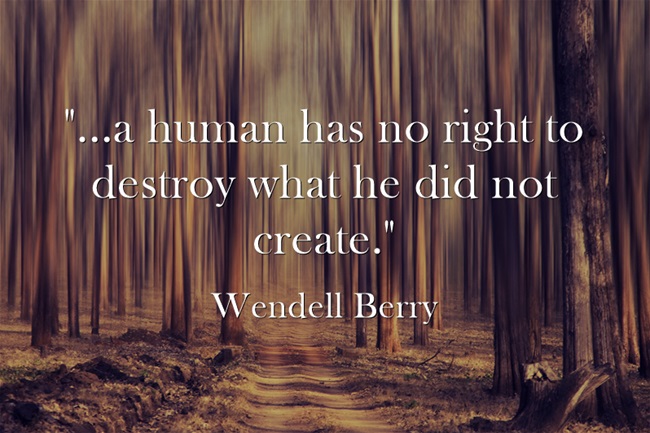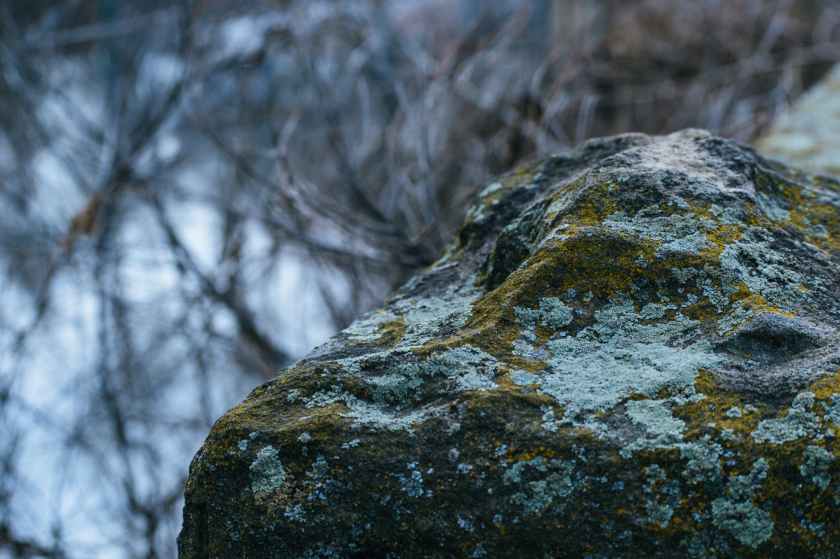
“The Norwegian playwright Henrik Ibsen coined the phrase “vital lie” for the comforting story we tell ourselves that hides a more painful truth. When it comes to the full costs of ecological ignorance in the marketplace, we endorse the vital lie what we don’t know or can’t see does not matter.” – Daniel Goleman
Our world is undergoing unprecedented change. For the first time in history, man, through his activities, has become a serious threat to the continued existence of life as we know it on planet earth. In his book, Ecological Intelligence: The Hidden Impacts of What We Buy, Daniel Goleman highlights one of the many challenges to change, and that is our inability to perceive ecological damage as an imminent threat. This makes it easy for people to believe “the vital lie” that because they can’t see or feel the damage, can’t perceive a threat, that it doesn’t matter, or even that it doesn’t exist.
“Psychophysicists use the term “just noticeable difference” to describe the merest amount of shift our senses can detect in sensory signals like pressure or volume. the ecological changes that signal impending danger are sub-threshold, too subtle to register in our sensory systems at all. We have no ready-made detectors for, nor instinctive response to, these hazy sources of harm. The human brain adapted to spot dangers within its sensory field. But to survive today we must perceive threats that are beyond our threshholds for perceptions. We must make the invisible visible.” – Daniel Goleman, “Ecological Intelligence”
But there are people who are so exquisitely sensitive to chemical and electromagnetic exposures that they seem to have almost superhuman abilities to detect toxins with the potential to harm humans, animals and the earth as a whole. I believe that these people, at least to some extent, may represent an exception to the rule spoken of above.
It seems to be the assumption of many, even sufferers of chemical sensitivity themselves, that the chronically ill are maladapted to our world. But if looked at through the lens of ecological destruction, just the opposite may be true. Those who know they are ill from the toxins in our environment have adopted the name canaries in the coalmine because they believe they are a warning to the rest of the world. They live each day unavoidably aware of the damage to our planet. They feel environmental damage in their lungs, joints, muscles, brains. They feel the pain of the destruction like no others. For them, Toto has pulled aside the curtain so that they can see the humbug wizard behind the madness of our world. They exist in an alternate reality not seen by others, and it can be maddening. The world is burning, but though they scream fire at the top of their lungs, the audience is mostly deaf.
No, canaries are not maladapted, they are hyper-adapted.
When a person is aware of what and where pollution is, and is also aware of the fact that they are indeed being made ill by pollution, there are certain things that they are unlikely to do. They would be unlikely, for example, sit in a moldy house drenched in artificial fragrance and toxic cleaning chemicals and wonder why round after round of antibiotics doesn’t clear up their repeated sinus infections. They probably would not wear clothes reeking of fabric softener while wondering why their asthma keeps getting worse. They would not own a vehicle with a leak in the gas line and wonder why they have migraines every time they go anywhere. They would not spray their yards with Roundup and then wonder why they just cannot get well. They just wouldn’t do those things.
The problem with being a member of a group of people who are hyper-adapted to a toxic world is just this: they are a minority. For now. And because they are a minority, it means that the pollution proceeds unabated. It means that because the destruction is “beyond the threshhold for perception” of most people, canaries will often be viewed as crazy malingerers. It means that no matter how many adjustments to their lives that they make, they will never completely escape the pollutants that are making them ill. It means isolation. It means frustration. It means heartbreak.
So what is the answer? It is Daniel Goleman’s contention that if more people begin using their cerebral cortex to make decisions about what’s dangerous and what’s not rather than relying on their amygdalas, that we might have a chance to turn this ship around. We just need to get the word out, he says. I disagree. Our best efforts will continue to fail. The cards are stacked against us because those with the most money and the most power seem for the most part to be guided not by accurate information coupled with altruism, but by greed. They are morally bankrupt. This will not change because all the good ideas and good intentions in the world cannot root greed out of the heart of man.
I’m a Christian. And as such, I do not believe that we are alone in this. I believe the bible when it says that God will “bring to ruin those ruining the earth.” (Revelation 11:18) I believe Jesus when he said that the “meek… shall inherit the earth”. (Matthew 5:5 KJV)

So if I’m right, if it’s true that God is going to stop us from annihilating ourselves, does that absolve Christians of the responsibility to care for the earth? No, far from it. Wendell Berry wrote that “a human has no right to destroy what he did not create.” God did not put us here to become a plague, but to care for and protect our home. (Genesis 1:28) And aside from that, it is the responsibility of all Christians to imitate their God who is love. Love should guide all of our actions. Wasting resources, polluting the air and water, spreading garbage everywhere, and generally making ourselves pests is far from loving.
“Violence against one is ultimately violence against all. The willingness to abuse other bodies is the willingness to abuse one’s own. To damage the earth is to damage your children.” – The Body and the Earth, by Wendell Berry
What can we do?
We can refuse to believe “the vital lie”. We can pull our heads out of the sand and educate ourselves. We can make a genuine effort, once we know better, to do better. We can believe those who feel the pollution in their bodies, the canaries. We can refuse to do avoidable harm. It matters.



